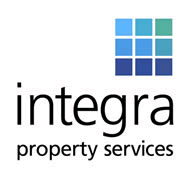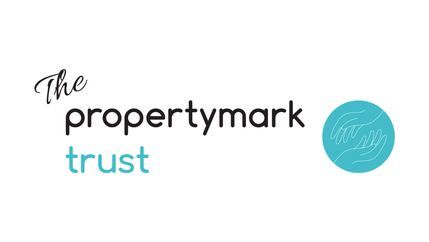
There has been much talk and precious little action following Lord Best’s 2019 Report on Property Agents (ROPA)
Chaired by Lord Best and formed in October 2018, the working group made up of industry and consumer experts, examined the options available for raising standards across the property agent sector.
The working group made key recommendations in July 2019 on:
- a model for an independent property-agent regulator, including how it will operate and how it will enforce compliance
- a single, mandatory and legally-enforceable Code of Practice for property agents
- a system of minimum entry requirements and continuing professional development for property agents
Prima facie a laudable set of recommendations that the leading professional bodies (all of whom were members of Lord Best’s working party) are behind.
Obviously the covid pandemic halted normal life in its tracks and momentum undoubtedly stalled with Government seemingly kicking the proposals into the long grass. What was seen, at the time, as much more pressing issues around the economy in particular, have not gone away..
In fact Governments of different colours have, despite an occasional soundbite of intention, never moved far towards raising standards or improving the levels of competency in the industry.
The Estate Agents Act 1979 has a section (22) that many agents will be unaware of. Section 22 sets out that a minimum required level of competency will be required in order for an agent to be able to trade. This requirement has never been introduced with Governments always preferring competition to competency.
Of course the Estate Agents Act is aimed at sales and buying businesses but could surely and easily be amended to incorporate lettings which already has a myriad of other legislation to comply with.
The important requirement of membership of a Government approved redress scheme and carrying of PI insurance did become mandatory in October 2014. This was a positive step forward for consumers but does not really address issues of “rogue or incompetent traders” as it is complaint led rather than proactively policed.
There are currently a myriad of mandatory requirements and regulations that agents must comply with and a large number of supervisory bodies, codes of practice etc – these include Trading Standards, HMRC, the ICO, The professional bodies, the Insolvency Service and Local Authorities and are largely, like the redress schemes, complaint led and not actively policed. HMRC is a notable exception with Money Laundering compliance. The activities of its Economic Crime Supervision Unit funded by a mandatory subscription and, in the case of major businesses, an additional Economic Crime levy.
All of the regulations that agents are required to comply with carry penalties and ultimately banning orders can be imposed that would stop someone trading. Indeed, the redress schemes can expel a member for non-payment of a compensation award after investigation. This would mean an agent, if they continued to trade, would be doing so illegally and could, and should, be banned.
In simplistic terms, those that are in favour of ROPA, minimum qualification levels and licensing of agents argue that it will raise standards and provide a more streamlined framework for enforcement.
Those that are against the introduction of ROPA, argue that there is already enough regulation in place, that the industry does not need the additional costs of implementation and ongoing supervision and that it is lack of enforcement of existing requirements that is the real issue.
It currently costs an agent a minimum of £35 pa to register with the ICO, £300 pa per branch with HMRC, £262 pa per branch with TPOS plus potentially membership costs with Propertymark NAEA, ARLA or the RICS (or, as in my case, all of them!). PII costs are, rightly, a mandatory addition.
It is clear that both Propertymark and RICS would like to see themselves as regulators for the sector but aspects covered by the ICO, HMRC and redress schemes would continue separately and so the costs of setting up a qualification process, licensing scheme and subsequent regulation would be an additional, and not insignificant, cost burden on operators.
As a professional with 48 years of industry experience (I started when I was three) I understand the arguments of both camps. When Lord Best’s report was first published, I went public with a view that it wouldn’t happen within the lifespan of my remaining career, and whilst I have no immediate plans to hang up my clipboard and tape measure, I still hold with that opinion.
To implement ROPA will require a huge amount of resource by agents to be directed at training in order to ensure all staff reach a minimum level of qualification. This is not necessarily a bad thing and as a man with more letters after my name than in it, I fully support all efforts to improve knowledge and skills. It is also true however that there are many within the industry, without formal qualifications who are honest, competent and who deliver high class services to their customers and clients.
Mandatory qualifications in themselves, whilst, hopefully, raising the knowledge bar, will not, in my opinion, ensure competence or honesty and a robust licensing regime will need to be created and actioned that is judge and jury on the actions of those that are licensed. This licensing regime will need the ability to discipline and expel operators who fall below the standards mandated. Of course, this could happen now within existing structures but, in reality, there is little or no policing or enforcement across the sector.
The education of consumers will also be key and there are those who would rather pay a low fee and accept shortcomings in service delivery rather than pay a premium cost for services under a new order. When asked, the public always say that they would like to see higher standards yet how often does a consumer currently check or even ask about the qualifications, insurance, experience etc of their chosen agent? Not often enough that’s for certain.
The introduction of ROPA is possible and may be desirable. After all, we are one of the few countries in the world where agents are not licensed. If one was starting from ground zero this would all be straightforward but we are carrying the baggage of history.
Speeding up sale transactions (an important key area of improvement needed) will not be directly achieved by ROPAs recommendations although improved knowledge and skills will help if processes and systems are aligned across the piece.
Finally, I feel that the debate will continue and the focus of Government is likely to remain elsewhere. The question, in my opinion, therefore remains as to whether we need a “new broom” to sweep across the industry or could we, like Trigger from Only Fools & Horses, see a better outcome from using existing legislation and structures to create the more fit for purpose “broom” we all desire, going forward?
Michael S Day MBA FRICS FNAEA FARLA
Managing Director








